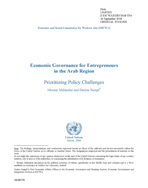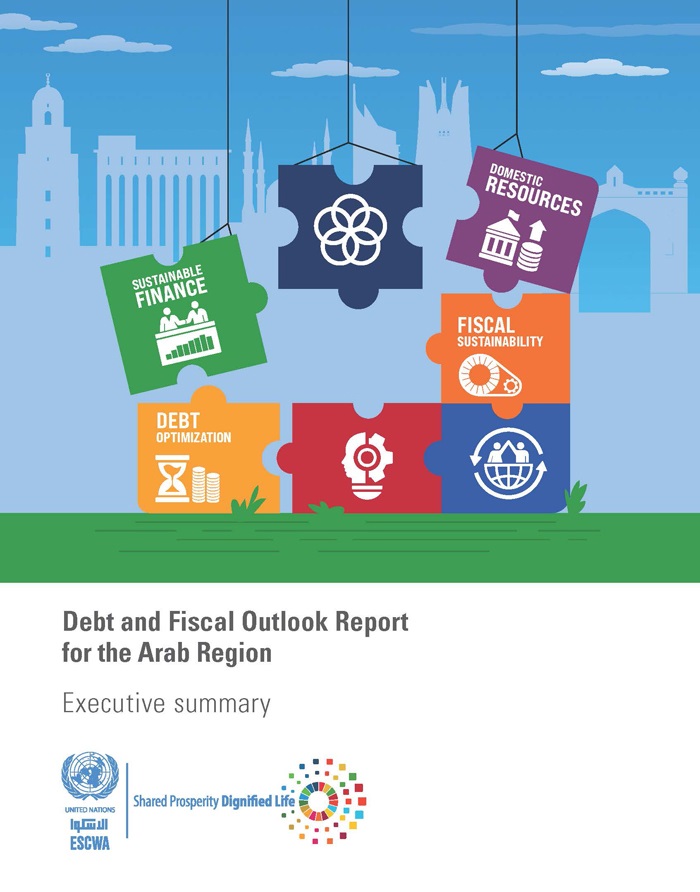
ESCWA Publication: E/ESCWA/EDID/2018/TP.6
Country: Arab region
Publication Type: Working papers
Cluster: Shared Economic Prosperity
Focus Area: Financing for development, Governance & enabling environment
Initiatives: Governance and institution building
SDGs: Agenda 2030
Keywords: Arab countries, Competition policy, Development finance, Development planning, Education, Entrepreneurship
Economic Governance for Entrepreneurs in the MENA Region: Prioritizing Policy Challenges
January 2018
This paper identifies priority policy challenges to facilitate entrepreneurship in countries of the Middle East and North Africa (MENA). Based on evidence from the Doing Business and Worldwide Governance Indicators projects and a systematic review of relevant literature, the paper identifies three priority policy challenges for economic governance reform: i) competition policy, ii) access to finance, iii) entrepreneurial education. The paper argues that the improvement of economic governance in these three policy areas constitutes a crucial lever to promote entrepreneurship in MENA countries. By highlighting the interdependencies between these policy areas, the paper derives a set of policy recommendations for each of the identified policy challenge areas.
Related content
Financing for development
, Governance & enabling environment
,
This paper identifies priority policy challenges to facilitate entrepreneurship in countries of the Middle East and North Africa (MENA). Based on evidence from the Doing Business and Worldwide Governance Indicators projects and a systematic review of relevant literature, the paper identifies three priority policy challenges for economic governance reform: i) competition policy, ii) access to finance, iii) entrepreneurial education. The paper argues that the improvement of economic governance in these three policy areas constitutes a crucial lever to promote entrepreneurship in MENA countries. By highlighting the interdependencies between these policy areas, the paper derives a set of policy recommendations for each of the identified policy challenge areas.



